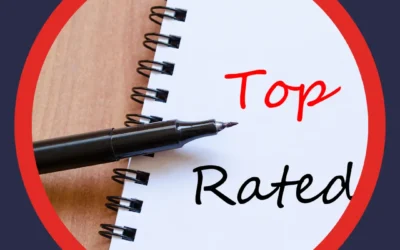Even though hearing loss affects a significant portion of Americans—especially among older adults—only 16% of those who actually need hearing aids use them. Hearing health isn’t just about amplifying sound; it’s intricately linked to overall psychological and cognitive well-being. There are many risks to untreated hearing loss.
But why are so few seeking treatment? Barriers include the cost, stigma, poor customer satisfaction, and lack of accessibility. However, recent advancements in design and technology, coupled with new legislation, are making affordable hearing aids more attainable than ever. Whether you’re seeking hearing aids for the first time or are frustrated with the options you’ve found so far, this checklist aims to guide you through choosing a hearing solution that will be a worthy investment.
Why Are Hearing Aids So Expensive?
Understanding the Investment: The Real Cost and Value of Hearing Aids
Hearing aids are not just electronic devices; they are comprehensive solutions for complex problems, and their price tag reflects this. Here are some key factors contributing to the cost:
- Technological Innovation: Advanced features like Bluetooth connectivity, tinnitus-masking, and noise reduction add to the price.
- Customization and Professional Services: From fittings by audiologists to customer care, personalization of services affects the final bill.
- Ongoing Support: Expenses for continued adjustments and consultations can accumulate.
- Quality and Design: Different styles and models come with varying costs. In-ear hearing aids, for instance, are often pricier than behind-the-ear options.
- Additional Features: Premium models offer options like smartphone apps, rechargeable batteries, and speech amplification, further raising the price.
The Benefits of Investing in Quality Affordable Hearing Aids
While you can find hearing aids ranging from $399 to over $6,000, experts recommend not skimping on quality, especially for moderate to severe hearing loss. It’s easy to find less expensive hearing aids that have the necessary premium features like:
- Optimal Amplification: Critical for those with severe hearing loss for better comprehension.
- Ease of Use: Features like Bluetooth and rechargeable batteries simplify daily life.
- Advanced Audio Options: Speech amplification and feedback suppression can greatly improve your hearing experience.
Explore more about hearing aid technology.
Making High-Quality Hearing Aids Into Less Expensive Hearing Aids
As the landscape shifts, hearing aids are becoming more attainable through various avenues. Monthly financing options lighten the initial financial load, while some insurance plans offer partial coverage—always worth a policy check. Additionally, savvy shopping can yield excellent value without breaking the bank, such as opting for prior models or entry-level options from top brands. Given the significant improvements in quality of life and overall health that high-quality hearing aids deliver, the investment is well-justified. Your local hearing center can help you carefully weigh your options to find the perfect high-quality yet affordable hearing aids.

What Are the Key Features to Look for in Affordable Hearing Aids?
When shopping for high-quality yet affordable hearing aids, key features can significantly enhance your experience. According to a Consumer Reports survey, 43% of users highlighted smartphone compatibility as crucial, allowing for convenient adjustments via an app. Rechargeable batteries are second at 31% and offer a more sustainable option. About one-fifth of users also valued either Bluetooth connectivity for pairing with other devices or automatic noise-level adjustments for different environments.
Additional essential features in less expensive hearing aids include:
- Telecoil Technology: Primarily beneficial for those with moderate to profound hearing loss, telecoils wirelessly connect to compatible public address systems and phones, enhancing speech clarity and eliminating background noise.
- Directional Microphones: This feature amplifies the sound coming from in front of you, making conversations in noisy settings more manageable. However, it may pick up wind noise.
- Feedback Suppression: Essential for reducing high-pitched whistling sounds, this feature is handy when the aid is close to a phone or slightly dislodged.
- Digital Noise Reduction: Aimed at blocking out background noise, it improves your ability to understand speech, although it’s not a one-size-fits-all solution.
The Mayo Clinic also mentions optional yet valuable features like wireless connectivity for pairing with Bluetooth-enabled devices, remote controls for easy adjustments, direct audio input for TV and music devices, and synchronization between two hearing aids for seamless control. Given the range of capabilities, it’s essential to assess your specific needs and consult with your provider to find the right combination of features for you.
What Are the Essential Questions to Ask Your Audiologist?
When looking to purchase high-quality, affordable hearing aids, it’s essential to ask your audiologist the right questions for a well-informed decision.
Understanding Your Hearing Loss
- What type of hearing loss do I have? Knowing whether you have sensorineural, conductive, or mixed hearing loss helps tailor your treatment.
Understand different hearing loss types.
- How severe is my hearing loss?: An audiogram during a hearing test measures the severity of your hearing loss across different frequencies.
- Do both ears have the same hearing loss?: Asymmetrical hearing loss requires more extensive medical tests and possibly specialized treatment.
- Which hearing aid suits my hearing loss and lifestyle?: Discuss your daily activities and preferences, like Bluetooth connectivity, to get a device that fits your needs.
Costs and Adjustments
- Will there be additional costs after purchase?: Confirm if follow-up care, adjustments, and batteries are included in the price.
Discover American Hearing + Audiology’s Concierge Service Plan.
- How often do you need to adjust my hearing aids?: Different centers have varying philosophies on follow-up care; make sure it aligns with your needs.
- How long will these hearing aids last?: While no one can guarantee the lifespan of your devices, an estimate helps you prepare.
- What kind of warranty is available?: Know your warranty options to decide on additional insurance or homeowner’s policy coverage.
- What if I’m not satisfied with the hearing aids?: Some centers offer trial periods; make sure you understand the details.
- Does my insurance cover these hearing aids?: Confirm coverage and explore alternative financial help if necessary.
- Do you check insurance coverage for me?
- Do you offer financing?
- Can I get a price quote that includes adjustments and follow-ups?
Arming yourself with these targeted questions will help you make an informed decision about your hearing aids. Understanding your hearing loss, evaluating costs, and knowing your options sets the stage for the next crucial step. To make your journey easier, the following section provides a checklist for choosing affordable, high-quality hearing aids. This checklist will be a quick reference guide to help you effectively assess your needs and options.
Your Checklist for Buying Less Expensive Hearing Aids

Use this checklist to guide discussions with your audiologist and ensure you’re making a well-informed choice.
Buying Affordable Hearing Aids
In your journey to better hearing, it’s crucial to consider all these factors. From initial exams to device features and financing, every detail matters. Know that you can find less expensive hearing aids to take control of your auditory health today. Contact American Hearing + Audiology to invest in high-quality, affordable hearing aids tailored to your needs.



